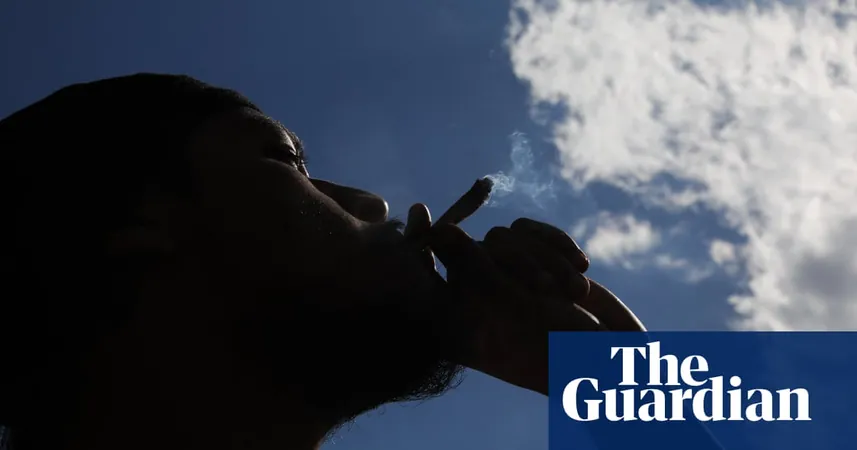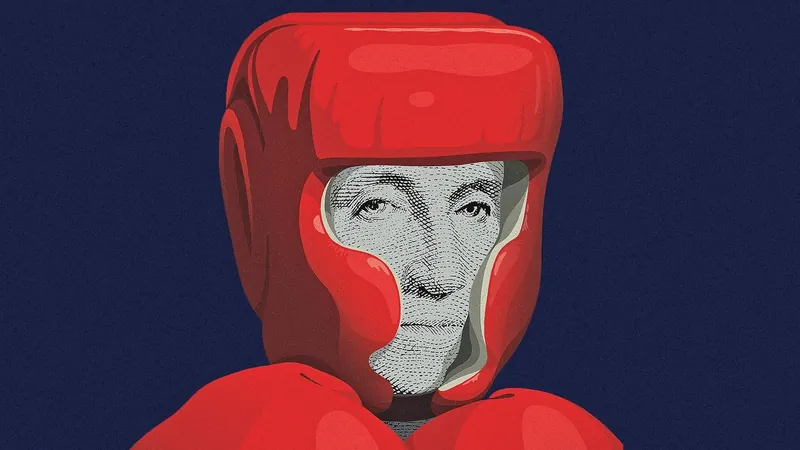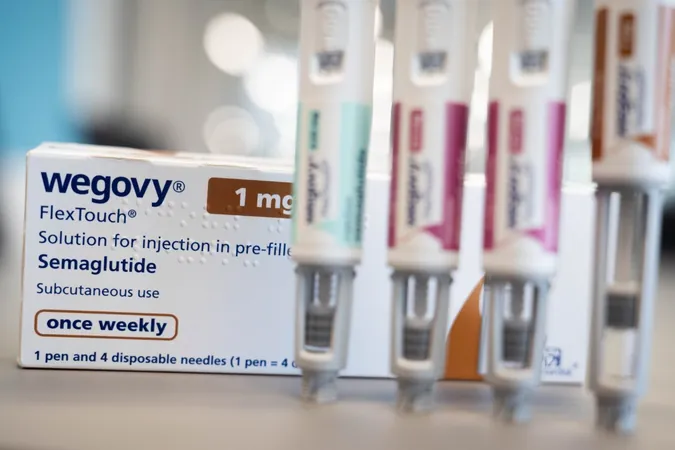
Can Cannabis Really Help You Sleep? The Surprising Truth Revealed!
2024-11-09
Author: Ken Lee
Introduction
In a world where countless insomniacs swear by cannabis as their nighttime savior, new research challenges that widely held belief, revealing a complex picture that varies dramatically based on individual mental health. A recent study from the University of Southern California’s Keck School of Medicine examined the effects of cannabis on sleep and found that while some may find relief, others could face exacerbated sleep issues.
Study Focus and Findings
The study targets a critical population: young adults suffering from pre-existing anxiety or depression. Interestingly, it discovered that these individuals experienced improved sleep quality with cannabis use. In contrast, those without any mental health issues reported a notable increase in sleep problems when using cannabis. Claire Walsh, lead author and a PhD candidate in behavioral health, stated, “The science on cannabis’s effects on sleep is mixed, with individual factors like mental health significantly influencing these outcomes.”
Research Data Analysis
The researchers analyzed data from USC’s Happiness and Health Study, which included surveys from 3,300 public high school students in Los Angeles between 2013 and 2023. The results revealed that frequent cannabis users—20 or more days per month—had an average decrease in sleep problems of 1.18 points over six months if they were anxious or depressed. Conversely, participants lacking such mental health issues reported an average increase of 1.66 points in sleep problems within the same timeframe.
Understanding the Disparity
While Walsh noted the unexpected disparity in sleep outcomes, the exact reasons remain unclear. One theory is that THC, the psychoactive component in cannabis, may temporarily alleviate the symptoms associated with anxiety and depression, thereby enhancing sleep. However, she emphasized that this doesn’t equate to a cure for those underlying conditions.
Correlation with Anxiety and Depression
Interestingly, researchers found a strong correlation between cannabis use and the prevalence of anxiety and depression, leaving the scientific community divided on whether these substances genuinely provide relief or merely mask the symptoms.
Expert Insights
Peter Grinspoon, a physician and instructor at Harvard Medical School, shed light on the connection between sleep and the body’s endocannabinoid system. He noted that individuals suffering from anxiety or depression may already grapple with insomnia, making it easier for cannabis to appear beneficial in these cases. Grinspoon also pointed out that the consumption method and dosage are crucial, suggesting that those seeking sleep quality might prefer lower doses to avoid stimulating effects that can hinder sleep.
Research Context and Cautions
Despite the early conclusions, Grinspoon cautions against discounting the burgeoning body of research in this area, which has emerged from a historical context where cannabis was heavily stigmatized. He remarked, “A lot of cannabis research has been done within the framework of the ‘war on drugs,’ focusing on the harms while overlooking the potential benefits.”
Recent Studies
Recent targeted studies indicate a more nuanced understanding of cannabis’s role in sleep, such as a noteworthy investigation from the UK involving patients with PTSD who were treated with vaporized cannabis from a stable strain known as Hindu Kush. Over six months, these participants reported significant sleep improvements.
Approaching Cannabis Use
However, it's essential to approach cannabis use with caution. Like many sleep medications, cannabis can lead to dependence, and withdrawal may result in worsened insomnia. Moreover, researchers have expressed concerns about the potential reduction in REM sleep associated with cannabis use, which could have unknown long-term implications on overall sleep quality and health.
Conclusion
Given these complexities, the debate surrounding cannabis and sleep continues, highlighting an urgent need for more comprehensive, controlled studies to unravel this multifaceted relationship—because while cannabis might work wonders for one, it may create chaos for another. So, before reaching for that pipe or vaporizer, consider your mental health and consult with a healthcare professional to explore the best options for a good night's sleep!






 Brasil (PT)
Brasil (PT)
 Canada (EN)
Canada (EN)
 Chile (ES)
Chile (ES)
 España (ES)
España (ES)
 France (FR)
France (FR)
 Hong Kong (EN)
Hong Kong (EN)
 Italia (IT)
Italia (IT)
 日本 (JA)
日本 (JA)
 Magyarország (HU)
Magyarország (HU)
 Norge (NO)
Norge (NO)
 Polska (PL)
Polska (PL)
 Schweiz (DE)
Schweiz (DE)
 Singapore (EN)
Singapore (EN)
 Sverige (SV)
Sverige (SV)
 Suomi (FI)
Suomi (FI)
 Türkiye (TR)
Türkiye (TR)